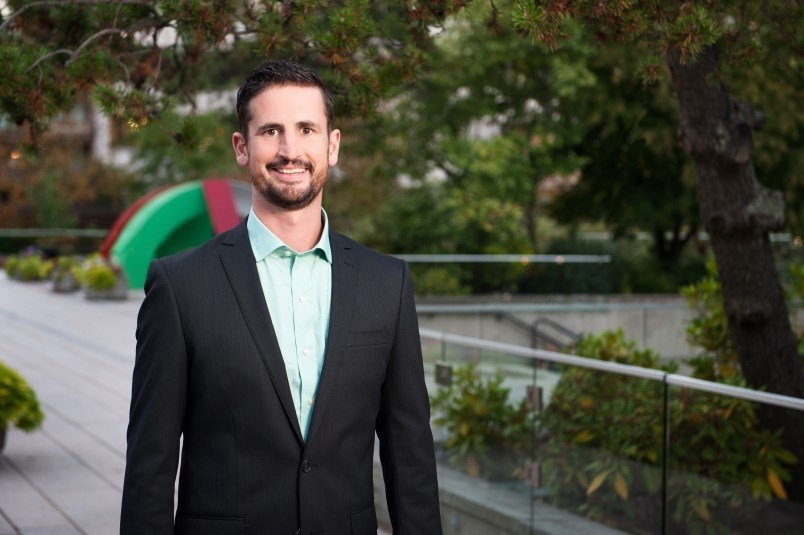Justice John Steeves made the point in response to a concern raised by lawyer Wes Mussio, who is acting on behalf of 15 citizens who filed a petition against Wiebe over his vote in May 2020 on a temporary patio program.
Some of those citizens are members of the NPA party, including Mussio, party president David Mawhinney, director Federico Fuoco and Michael Redmond, the lead petitioner in the case.
“The issues here are legal ones and they apply to any politician of any stripe — which is to say, that if any politician steps offside in terms of their conflict-of-interest constraints, then there’s ways to deal with that,” Steeves said.
“And it doesn’t matter whether they’re right or left or pink, or whatever.”
Steeves’ comment came after Mussio told the court that he took offence to the assertion from Wiebe’s lawyer, Aurora Faulkner-Killam, that the legal action was politically motivated.
During the four-day petition hearing, Faulkner-Killam said the case against her client was “brought with heavy influence from a political party,” and that it should not be ignored in the judge’s ruling.
“These sorts of comments are derogatory and unnecessary and not helpful to the court,” said Mussio, who became a director of the NPA after the petition was filed against Wiebe.
“This is not a political petition. The petition was brought across party lines, meaning that the petitioners have or have had involvement with a number of political parties, including Mr. Wiebe’s party.”
Mussio attempted to further argue his point about political neutrality but was cut off by Steeves, who urged him to focus on the next subject of his argument.
Wiebe was before the court because petitioners argued he was in a conflict-of-interest when he participated in a unanimous vote in May 2020 to allow temporary patios for restaurants, bars and breweries.
Wiebe owns the Eight ½ restaurant in Mount Pleasant and is an investor in Portside Pub in Gastown. Both businesses received temporary patio licences.
Council framed the motion as a measure to help businesses offset the economic damage sustained from pandemic-driven public health orders that banned dine-in food service.
Mussio argued Wiebe’s vote was a clear example of a pecuniary interest and presented a conflict. He said the program benefited a specific group of businesses — including his own — and that the councillor should have recused himself from the vote.
Faulkner-Killam’s position was that Wiebe acted in good faith when he cast his vote, that his business interests were filed previously on the city’s website and that the patio program benefited his competitors.
She also made the point that the City of Vancouver itself chose not to proceed with legal action against Wiebe, who is a first-term councillor and one of three Green Party members on the 11-member council.
There was some dispute between both lawyers over a conversation Wiebe had with then-city manager Sadhu Johnston over guidance given to the councillor prior to voting on the patio program.
City lawyer Grant Murray attended the proceeding Thursday remotely but was not called upon to discuss the case.
The case was heard in Victoria, where only Steeves and Faulkner-Killam were present in the courtroom, with Wiebe and Mussio attending remotely.
The case got to this point in court after Redmond, a retired lawyer living in Vancouver, complained to Mayor Kennedy Stewart’s office in June 2020 about Wiebe’s vote.
At the agreement of Redmond and Wiebe, lawyer Raymond Young conducted an investigation and report on the complaint.
Young concluded Wiebe should be disqualified from holding office until the next election in October 2022, and that it would be appropriate for the councillor to resign.
Wiebe chose to remain on the job, which left either the city or at least 10 citizens to initiate court action, which is what led to the petition before the judge.
Young’s report, however, was deemed inadmissible by Steeves on the first day of the hearing. He ruled that “the issues, evidence and conclusions in the report are for me to make, and they are at the heart of the petition before me.”
At the end of the hearing Thursday, Steeves said he would deliver his written decision “as soon as I can.”
@Howellings



